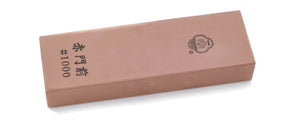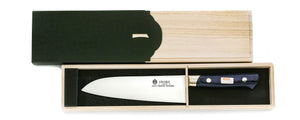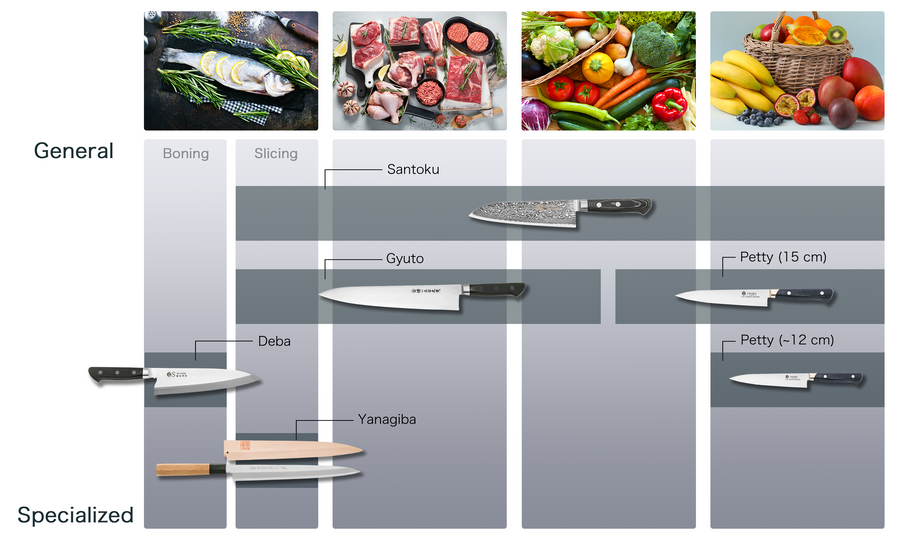
Tan Series
The hammered and wavy laminated damascus pattern of the finish reminds one of the water's edge, hence the name “Tan” (淡 / the first letter of the word "fresh water"). The blade is made of AUS-8 steel, which is easy to sharpen, and the knife is easy to handle for home use and can be used for a long time.
| Product number | Actual Blade Length (mm) | Full Length (mm) | Total Weight (g) |
|---|---|---|---|
| 1tankc-210 | 210 | 360 | 150 |
| 1tankc-240 | 240 | 390 | 170 |
| Blade | Material Name | Handle |
|---|---|---|

Double Edged |
AUS-8 | Oak |

Gyuto
Gyuto, literally means "Beef knife". The Japanese did not consume beef until it began to modernise with increased Western influence in the late 1800's. During that period, when Japanese thought of Western food, they thought of giant slabs of beef being cut and grilled or stewed, thus the "Gyuto" was born. In modern times it is the most common knife in Japanese households, with also the most variety of steel,blade lengths and handle materials available.
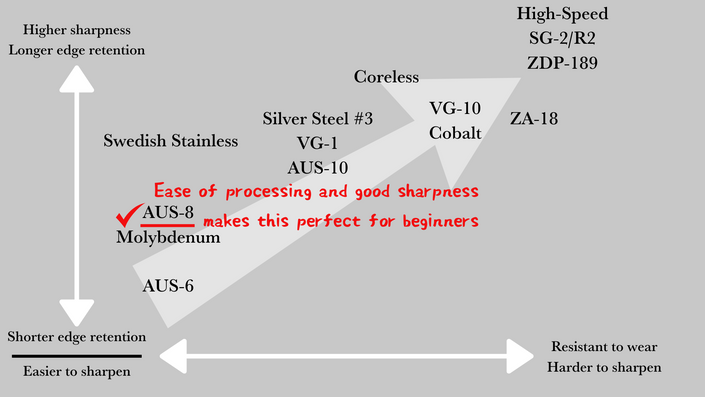
AUS-8
Also known as 8A, molybdenum steel and other names, AUS-8 is rust-resistant and easy to sharpen. Recommended for newcomers to the kitchen knife world.
Stainless Steel
AUS-8 Steel is a standard stainless steel that is often used in knives due to its rust resistance and ease of sharpening. It's lower hardness levels compared to other steels like Silver Steel #3 and VG-10 mean that it will be easier to sharpen and less likely to chip during use. Sakai Ichimonji Mitsuhide's AUS-8 knives have improved sharpness and edge retention due to our special quenching processes.
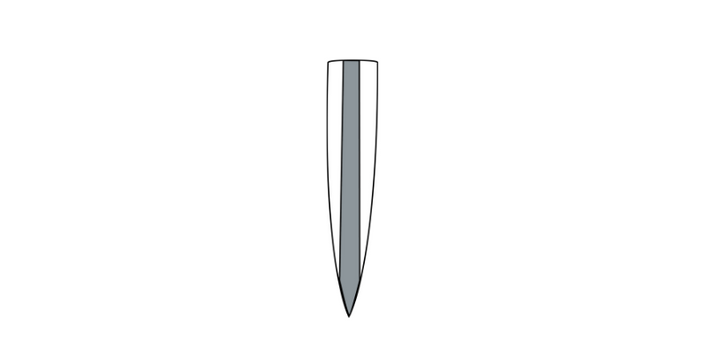
Clad
Clad knives are made from a steel plate that has a core steel sandwiched between soft iron. It is then shaped, hardened, and polished. This method is often used for knives focused on cost performance, as they are easier to remove distortions form and process.

Optional Engraving
Optional Engraving Service
Sakai Ichimonji provides complimentary engraving using either Japanese Kanji or English Alphabet. Please specify your preference. For details, please visit here
A knife store that has supported the history of knives and food culture in Japan.
It has been 600 years since the birth of swordmaking in the Sakai region of Japan. Sakai Ichimonji Mitsuhide's and it's craftsmen continue to build on that legacy by producing the finest blades in Japan.
This is where the culture of completing a dish of sashimi by "just cutting" and the culture of expressing sharpness as "taste" was born.
For 70 years, we have been connecting the spirit of Sakai's craftsmen with the passion of chefs in Osaka's kitchen equipment shopping district, known as the kitchen of Japan.
We are very happy that our knives can be used by people all over the world.
Precautions
After use, wash off any dirt and wipe thoroughly with a dry cloth to remove any moisture. This product is not for use with frozen foods.This product is handmade, so each piece will be different. Please use the weight and length listed as a guide. Each material is natural and may vary in color. It is not the same as the picture.We take great care with our inventory, but in the unlikely event that we are out of stock, we will contact you by email to let you know.



























